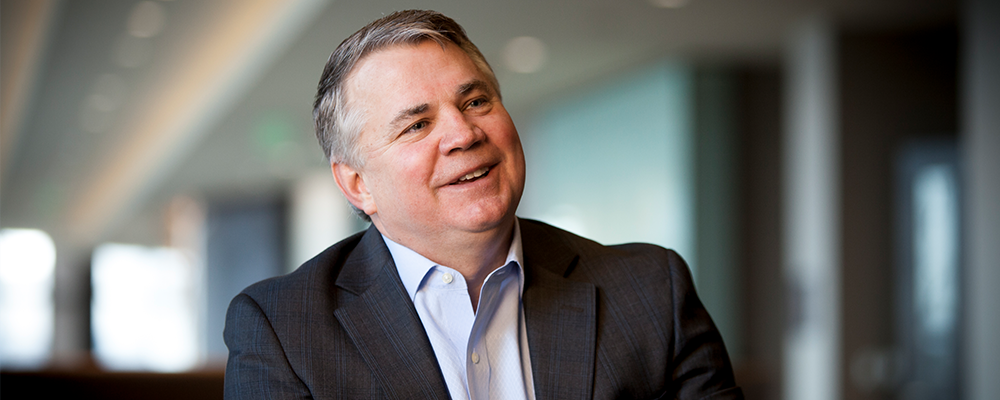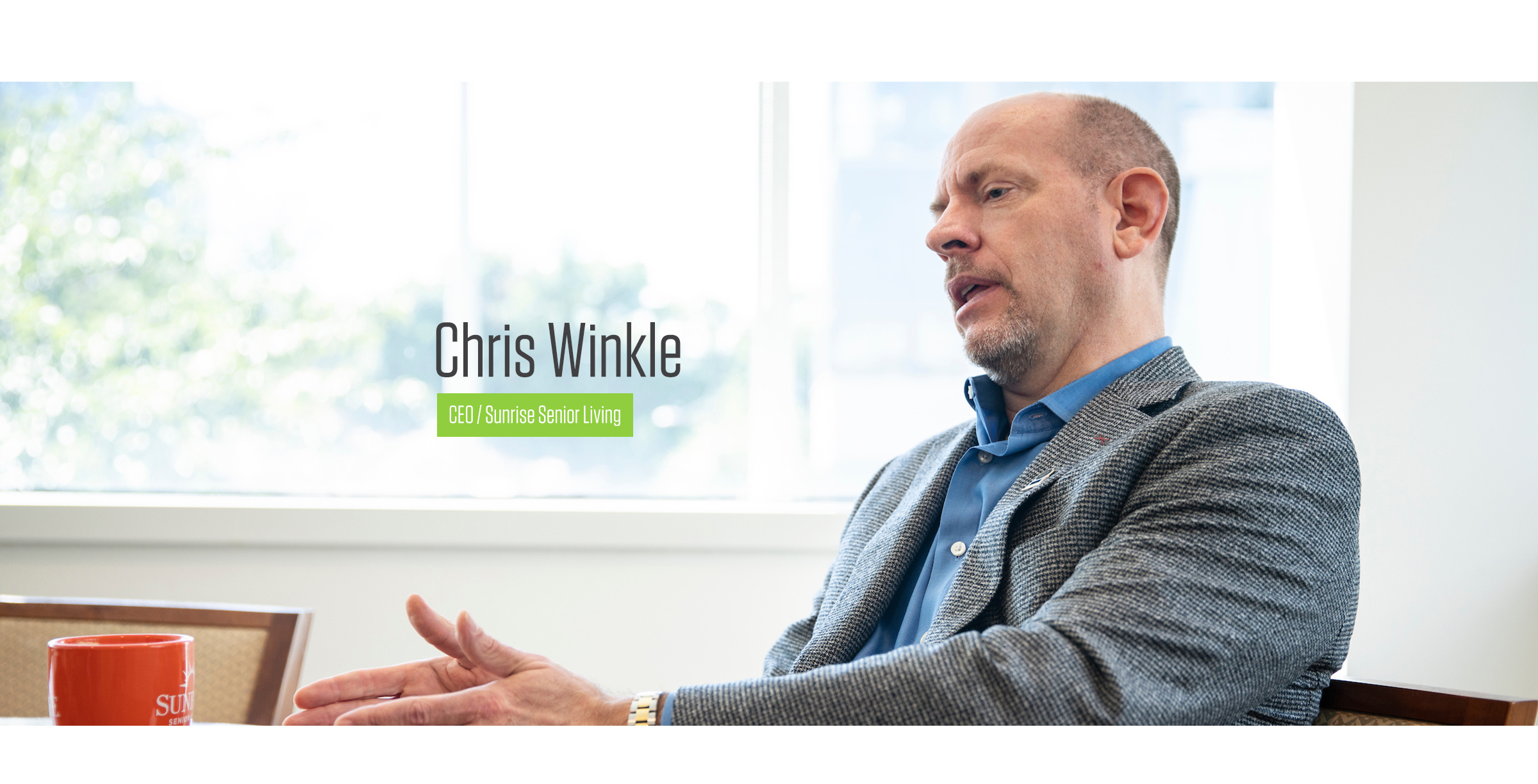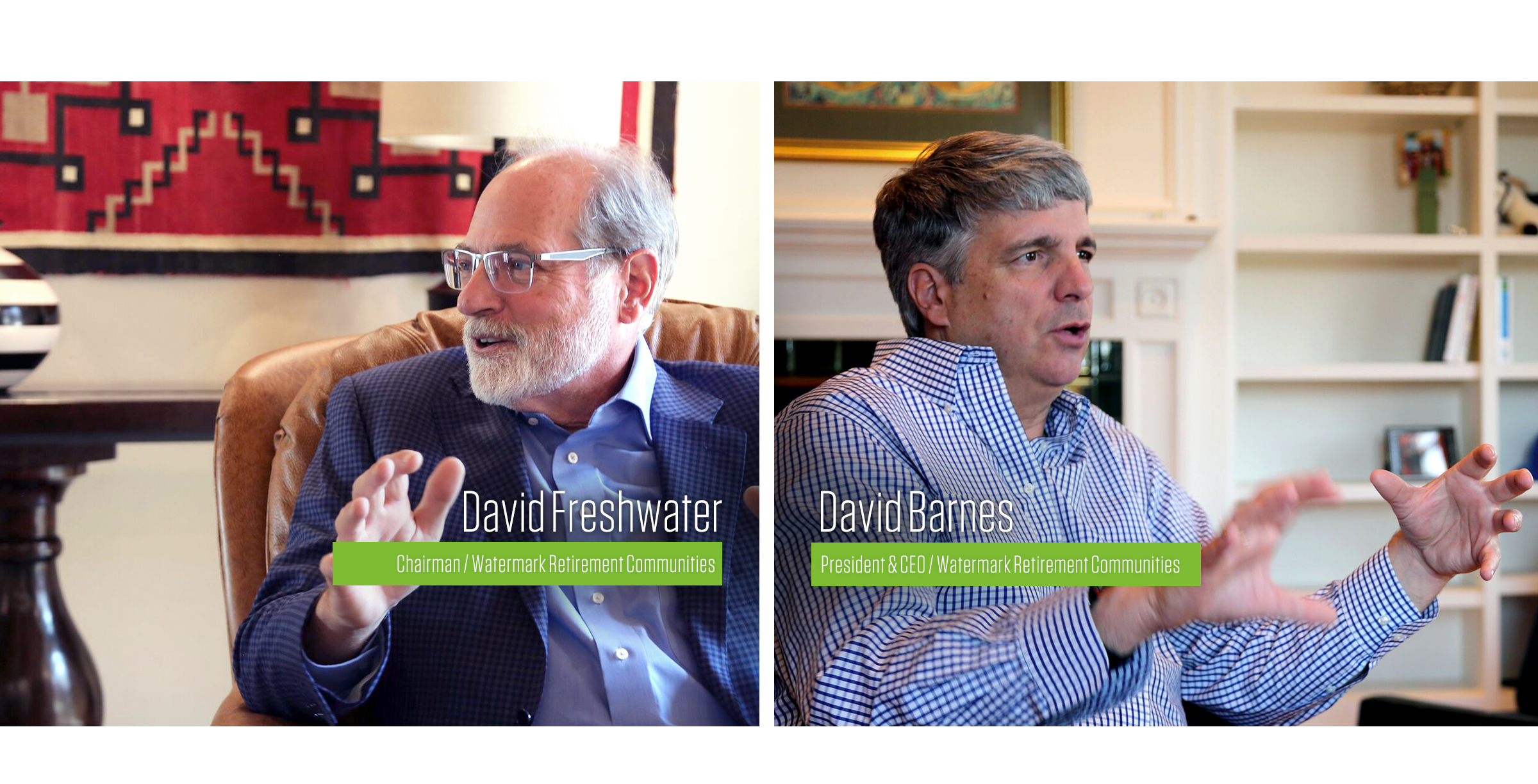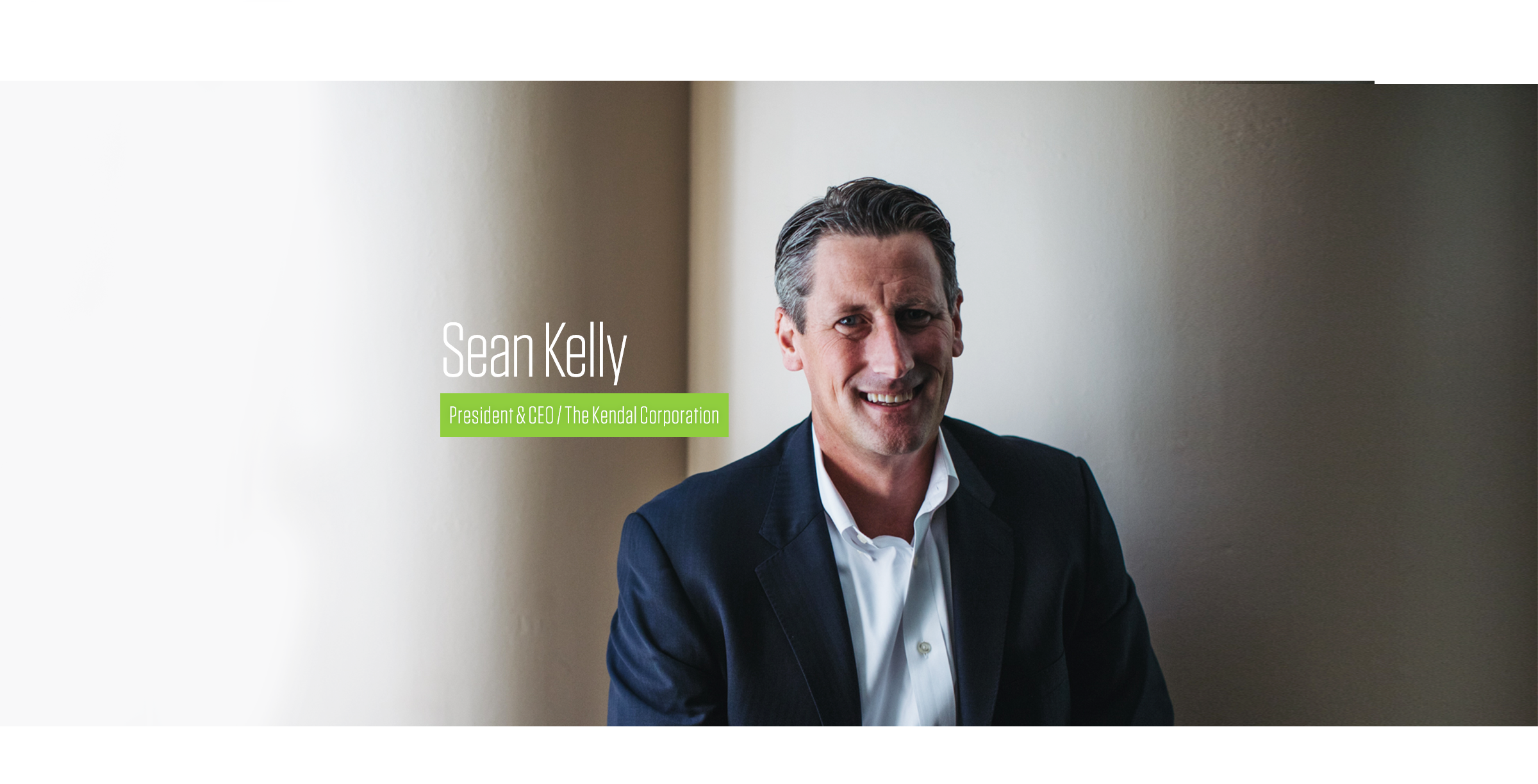Meet Joel Nelson, president and CEO of longtime senior housing owner and operator LCS. Nelson took the helm of Des Moines, Iowa-based LCS in January 2018, following a long tenure under former CEO Ed Kenny, who now serves as chairman of LCS’s board of directors.
Spotlight on Technology
What type of technology do you think can actually enhance the resident experience?
I think telehealth has a lot of opportunity to extend lives.
Is LCS doing anything with it right now?
We’re doing a fair amount. We’re partners with US CareNet. We actually sold a piece of our home health business to the company so that we can leverage their scale and their technologies. I do think the wellness piece is going to change based on the technology. There are pilots out there every day on robotics doing different things in our senior living communities. If you look at our workforce, we’re going to need help. Again, I think it’s just the balance of keeping the human element and efficiency.
Nelson, who began his career in hospital administration, has been with the company for more than 30 years and has most recently held positions as chief operating officer and chief development officer. As the chief executive of LCS, Nelson oversees six business lines: management, development, real estate, purchasing, insurance and home health, spanning core operations of more than 100 communities across independent living, assisted living, memory care and CCRCs.
We sat down with Nelson to hear about how he sees the company shifting under his direction, where opportunities lie ahead for experienced operators like LCS and why vision is the key to all good leadership.
Senior Housing News: Tell me about how you got into senior living.
Joel Nelson: I was always on the path for hospital administration on the acute-care side and I was doing an internship at the local hospital with the trauma center. I met LCS’s head of HR at a meeting and she started describing senior living to me.
The way she described it back in 1985 was: “Joel, it’s so engaging. Go see one of our communities. We have people doing all kinds of things, it’s active and you should learn more about our company.” I took it to heart and did a little research and started interviewing with LCS and never looked back. I left the hospital just short of one year and have been with LCS ever since I started in 1986.
What was your first role?
I started as an administrator-in-training (AIT). True to form with a lot of our company, [former CEO] Ed Kenny was an AIT, our EVP and head of life plan communities. Rick Exline was an AIT. That’s just the way many of us have grown up through the company.
Did you ever think you’d be running the company?
Not in 1986. I wasn’t sure I was going to be running anything in 1986. You just reset your goals every few years, and that’s a great thing about LCS. In my career of 32 years I’ve had new opportunities every two, three, four or five years. It probably wasn’t until I moved back to Des Moines in the late 90s that I started being mature enough to think that I might want to prepare run the company someday.
Do you remember your first day at LCS?
It was at Friendship Village South County. My first day I went to a resident council meeting.
What did you learn?
I remember the resident, her name was Ruth Allen, who was the resident board member. Ruth pulled me aside and told me the way life rolled at Friendship Village.
What did she say?
Ruth was a teacher and she volunteered immediately that she would review all of my resident communications. So she was my resident editor whenever I did memos or communications with the residents.
Was she tough on you?
I think generationally the way we speak and write is different. But yes, she was very helpful. There were two local communities, and we would alternate locations for the board meetings. And my job for the board meeting as an AIT was always to make sure that Ruth got to the board meeting when it was across the city at the other community. I had a little sports car and I remember getting her. Here I had this 80-year-old lady in my little Mazda RX-7 and off we’d go. She was a wonderful woman.
I don’t know your whole story yet, but if there’s a common theme at LCS, it seems to be that there are many LCS “lifers.” Is that fair?
Yes, and I think that’s very fair for me. As we’ve evolved as a company, what’s really changed our organization over the last 10 to 15 years is a decision under Ed Kenny’s leadership to bring in external capital investors. Today we have a board of managers with five LCS employees and two external board members. I think just having that external perspective has challenged us to go down some paths that maybe we wouldn’t have in the past. On my leadership team, I have what I consider two lifers and three who are becoming lifers because they’ve all been with LCS now ten-plus years.
You took over for Ed Kenny on January 1. How are things going to change under your leadership?
Ed’s been a very, very successful CEO. He’s been my boss for 25 years. I’ve worked with him for 32. I think we were very aligned on where the company is headed, and the vision. I think where it’s going to change is in driving the strategic shifts in our company to become more active as an owner. The rental company is clearly a strategy. And then the ability to adapt to our workforce challenges is going to change how we leap forward.
But there will not be any sweeping changes, is the short answer. We’re looking at doing some new things and we’re doing some things differently, but the fundamentals of LCS and principles of LCS are solid and I like the path we’re on.
We’re looking at doing some new things and we’re doing some things differently, but the fundamentals of LCS and principles of LCS are solid and I like the path we’re on.
What are some of the new things you’re looking to do?
The way we execute our real estate strategy is one thing. Today, we have various partners that bring equity to the table or participate in the equity. We’ll continue to do that with a select number of our investment partners, but our goal is to really have our own fund. We’re in the market today. There will be more coming about that this year.
How much is LCS looking to raise?
We’ll be looking at $300 million-plus as an initial step in. That’s an exciting place—we really think that syncs up with us being able to have a little more control. David Laffey, who is an executive vice president and leads our LCS Real Estate business line, is spearheading that initiative for us and we’re really excited about it.
So is the company raising the money to take advantage of opportunities you see, such as problem assets in the market? Is it an opportunistic kind of fund?
It’s a fund that will allow us to play in all spaces: value-add for life plan and rentals, new development and then core. Today, we get an opportunity and underwrite it with our real estate partners. Then we go out and say, “OK, who’s going to be our partner on this one?” This new fund will allow us to be a little more nimble in the market. And it also allows us to play on the rental and life plan models. We have partners that prefer the life plan model, and then we have partners that want to stay in the fairway of rental.
CCRCs faced a difficult market for a while there, and then bounced back. Were you surprised?
No. People have the discretionary income and are making that lifestyle choice to move to a CCRC. Over my three decades in the business, there have been other economic cycles where real estate markets got tough, and sales were slower. I think there’s always going to be a spot for CCRCs. I think we’ll see and we’re starting to see some recovery even with new development of CCRCs.
How do you manage the balance of not-for-profit and for-profit communities and CCRCs versus rentals? Is there a certain percentage you’d like to see of each?
Not necessarily. The company was built on 75 or 80 not-for-profit communities that we manage. So we have a large portfolio of management contracts and the rental company has experience some nice growth. I expect we’ll have greater growth on the rental side of our business just because of opportunity and availability. But I think the CCRC business will remain very fundamental to what we do. The rental company will grow at a much larger clip and in that rental company of assets, we’ll own more of those than we will third-party manage. It’s almost flipped on the CCRC side—the heavy load will be on the third-party management but we will continue to look for CCRC acquisition opportunities as well. You mentioned distress earlier—if there’s a distressed portfolio of either, 10, 12 communities, that would be a really good fit for LCS or a large rental community.
Are you seeing a lot of distressed portfolios coming your way?
We’re starting to see more. And I think that’s bittersweet because it’s not always best for our industry. But it is a great opportunity for us to come in and make a difference.
Do you think it’s going to get worse before it gets better?
Yes.
How much worse?
Define worse! I think we’re going to remain a very strong class in the real estate space in terms of performance. We expect there will be a number of senior living portfolios that are going to be put on the market. Some of those wouldn’t be a good fit for us. Then I think it all depends on the next 24 months of the economic cycle, too.
Do you still have a lot of owners coming to LCS to operate their buildings?
We do. We continue to invest in and build in that infrastructure. We’re getting better at it with technology running different platforms for different products. Our business growth continues.
TECHNOLOGY
What are some of the technologies LCS is looking to implement?
It’s really across the board. There are business technology and business platforms, [and tech like] electronic medical records. In assisted living communities, electronic health records, CRM systems, billing systems… they are givens. You have to have strong CRM and HR systems. We just implemented a full new platform on the HCM Cloud for all of our employee’s management That’s a technology that is going to give us better data and metrics, and will be very beneficial in the operations of the communities.
This is only the beginning. The exciting stuff is in keeping residents in their independent or in their assisted living units longer through telehealth. I think that’s becoming more and more sophisticated each year in terms of being able to manage chronic conditions and illnesses.
And then there’s the exciting stuff everyone’s talking about, like robotics. We have a community that’s got robotics for security checks. You have certain security points in each community. Depending on the size of the community, you might go check all those points manually. In this situation, a robot can go and check every room and walk the whole entire campus and do the checkpoints. That data goes back to the central security desk to let the staff know “John isn’t home,” or “We haven’t seen John in [a while] and there needs to be a check.” You’re also seeing some of that technology in health care centers.
As an industry, we have the Thrive Center, the Innovation Center up at Direct Supply in Milwaukee. We have Aging2.0 with Katie [Fike] and her team out there trying to find new technologies. We’ve got LinkAge with Ziegler. They’re looking at two to three new technologies a month. There’s very little of it that’s proven, but it’s coming. The only struggle I have is balancing the technology. This is a human and relationship business that is about a social lifestyle.
I think the other part of technology that’s been changed so much is [in terms of] wellness. Google’s into it. The other part is with smart homes, we’re doing some sampling in Seattle, where we are looking at making some units fully, complete smart homes.
What is LCS doing?
It’s the technology of really running everything from your mobile devices, to Nest thermostats, keys.
As the CEO, how do you balance experiments like that versus knowing what your core business is and what’s gotten you there? How do you really decide how much to experiment?
Admittedly I know LCS, but I think our industry, is light on the R&D side.
Do you think we need to do more?
I’ve talked to colleagues and fellow leaders. They like some of it but they’re waiting to see if it’s really going to work. And even in our future design of senior living we ask questions like: will the apartments or the homes be the same in 5 years ? Will assisted living be the same 10 years from now? It’s more about accommodating the needs of the present and future consumer.
I don’t think anybody has the answer of what it’s going to look like.
So how do you balance that? Do you think you need to invest more in R&D?
I think we have to be open to all of the technology opportunities out there. As a company, we have to be more engaged and participative. And then I think it’s important to hear from the residents. They’re becoming more technology minded. Keeping within their comfort zone is really important as well.
Is technology helping to stem some of the staffing crisis the senior living industry faces?
To be determined. I don’t know the answer to that yet. It certainly isn’t going to hurt, but if you think about 10 years ago, when we changed to electronic medical records, it didn’t create any measurable efficiencies. We still needed the same staffing levels and arguably more.
Has LCS seen the benefits of investing in technology like Electronic Health Records (EHRs)?
The challenge with technology is keeping up with the cost. The updates and the changes in technology are happening so rapidly, that just as you get the new system implemented, it’s out-of-date and you should be looking at something else or a full upgrade.
Would you consider LCS a hospitality or health care company?
More hospitality. No question. We have 34,000 seniors and 5,000 skilled beds. But I think health care is a component of hospitality.
What do you mean by that?
People move to senior living for lifestyle even with Assisted Living to a certain extent. Our job is to help residents manage and navigate their health care; helping the resident get from point A to point B, whether it’s managing their diet, their monthly health checks, or their wellness. Our health care system is complex. Reimbursements with all the different managed care organizations and provider networks are complex. Helping residents navigate that health care is where the hospitality, the medical concierge comes in. We really tie that in when a resident comes to an LCS community.
Our health care system is complex. You get to the hospital, what do you do? Where are the reimbursements with all the different managed care organizations, and the provider networks? Being able to navigate that health care is where the hospitality, the medical concierge comes in.
“We need to get that scheduled, John, because you’re due to be back in the doctor’s office in May. Would you like me to do that for you? Is there any week that’s bad?” All that’s about hospitality and helping the resident navigate the health system. And so that’s why I say it’s a piece of hospitality.
LEADERSHIP
What’s your definition of leadership?
This is a Joel Nelson definition, but leadership is all about vision. It’s inspiring others to see the vision and accomplishing the goals through the power of collaboration. That’s a lot of words, but at LCS we refer to this with our clients and with each other: Together, we’re greater. And it’s through that power of collaboration that we can leverage to reach the vision.
Leadership is all about vision. It’s inspiring others to see the vision and accomplishing the goals through the power of collaboration.
What’s been the biggest challenge you faced in your career?
I might be in the midst of it now. We’re at a critical point. We’re evolving with the real estate strategy. Like others in our industry, we’re navigating through a changing health care environment. We’ve got future workforce shortage issues and the marketing and occupancy development is top of mind for me. Those are all really big challenges that I think are all solvable. But I think I’m going to see my greatest challenges yet ahead of me.
Does it make you nervous?
I think if you’re not a little bit nervous, you’re probably not engaged. My confidence is very high because of the investment we’ve made in our people. I mentioned “Together, we’re greater.” That’s real. That’s not the marketing speak. I’ve have a strong team of subject experts very committed to serving seniors. The challenge is getting common ground amongst all of us to make sure we’re making the right moves at the right times. You’ve got to pivot when you’ve got to pivot.
The fact that you kind of started at the bottom at LCS… do you think that gives you more credibility with the workforce?
I don’t know. I believe you’re as good as you were as of yesterday. Meaning, I try not to get caught up on the past, and instead focus on what the future can be. I do think our clients benefit from that experience. As an owner I’ve made the same tough decisions that our clients and owner’s may need to make. Decisions like: Do we reposition the campus? Do we have to actually put more debt on the property? Do we change the service plan for the residents? I think bringing an owner’s perspective to the table to help our third-party management clients, is a plus. We think like owners regardless of whether LCS is an investor or not.
What’s the best piece of advice you have received in your career?
I had a colleague early on in my career who said: Stay grounded to your purpose. Know your weaknesses and play to your strengths. I’ve always kept that in the back of my mind, and I think that’s probably what’s kept me in the business for 32 years. I think there is a purpose piece to it. It’s always resonated with me about making a positive difference with the seniors we serve. Even as the CEO I think about that every day driving to work.
Who do you consider to be your mentor and how has that person helped your career?
Ed Kenny. Ed and I have worked so closely together for so many years.
You said 25 years, right? That’s a long time.
Almost half my life. I started reporting to Ed in the late 90s. [I appreciate] the patience Ed has taken and the opportunities that Ed has given me. We refer to it as coaching tips. Ed’s given me a lot of coaching tips over the years. He’s had an impact and influence on my career and on me personally.
What would you say your greatest strengths are as a leader?
Being able to put the team together and execute the plan, setting the vision, being very strategic-minded. But also being able to assemble the right team with the right time to execute the plan. I’ve had a lot of good people around me over the years who made me look really, really good.
What would you say your biggest weakness is?
I have many. Over the years, patience. And maybe to a certain extent, just perfection. I don’t want to let people down. Sometimes your strengths are your weaknesses as well. I’m highly competitive. That’s with clients, residents, employees. None of us likes to fail. It’s the patience for success.
What’s the biggest challenge the industry faces?
It is probably the workforce, but occupancy and pricing is a close 2nd in my mind But I think there’s a distinction when we refer to “workforce.” I think as an industry we’re doing a better job of being able to identify and go out and bring in talent. There are some sharp business, finance and MBA people in the real estate space and I think we’re seeing that over on the provider side as well. So we’re becoming a bit sexier. I think it’s taken all of us to be in front of those college students and high school students saying, “Running a retirement community is not running a nursing home that you remember 30 years ago with your grandma.” The recruitment, training and retention of line staff is equally challenging.
We’ve got to figure that out. We’ll get there, but it’s sneaking up on us. The big challenge is also regulation. We have minimum wage going up all the time. We have overtime regulation changing, and immigration regulation. And then there’s the training and retention of that workforce. How do you show them that they have a career path to become [an executive director]? We have people in our organization who are senior VPs who started in this business as activity directors, accounting directors, directors of marketing and sales, food and beverage directors. We are continually trying to show the pathway. I think as an industry we have an opportunity there.









